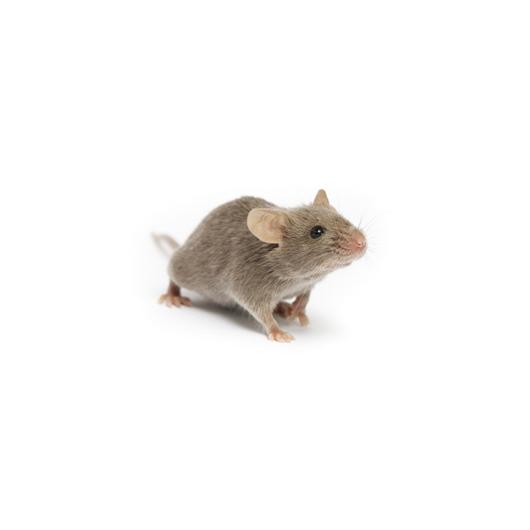
DBA/1J mouse (JAX)
Nomenclature: DBA/1J
Type: Inbred
Origin: The DBA inbred strain is the oldest of all inbred strains of mice. Dr. CC Little began inbreeding in 1909 from a mouse colony segregating for coat color. During 1929 and 1930 crosses were made among substrains, and several new substrains were established including DBA/1 and DBA/2. DBA/1 and DBA/2 differ at a large number of loci (including the MHC H2 haplotype) which most likely results from residual heterozygosity in the strain when the substrains were separated.
DBA/1J mice are widely used as a model for rheumatoid arthritis: immunization with type II collagen leads to the development of severe polyarthritis mediated by an autoimmune response. The incidence of collagen induced arthritis varies by experimental protocol, but is less than 100%. Similar to the human condition, mice with collagen-induced arthritis display synovitis and erosions of cartilage and bone. In addition, susceptibility in both humans and mice is linked to the expression of specific MHC class II molecules. DBA/1J mice show an intermediate susceptibility to developing atherosclerotic aortic lesions on an atherogenic diet. In response to challenge, DBA/1J mice develop immune-mediated nephritis characterized by proteinuria, glomerulonephritis and tubulointerstitial disease (Xie et al., 2004). There is high incidence of calcified lesions of the tongue with age. This strain is among the least responsive to phytohemagglutinin (Heiniger et al., 1975).
Coat color: Agouti
JAX™ stock no.: 000670
More information about the strain:
Ideal for:As a mouse/human gene homologs, immunology research, inflammation and autoimmunity, neurobiology research, sensorineural research, dermatology.
Bred in: US
Health reports: Find health monitoring on JAX strain website
*Photos provided courtesy of The Jackson Laboratory

